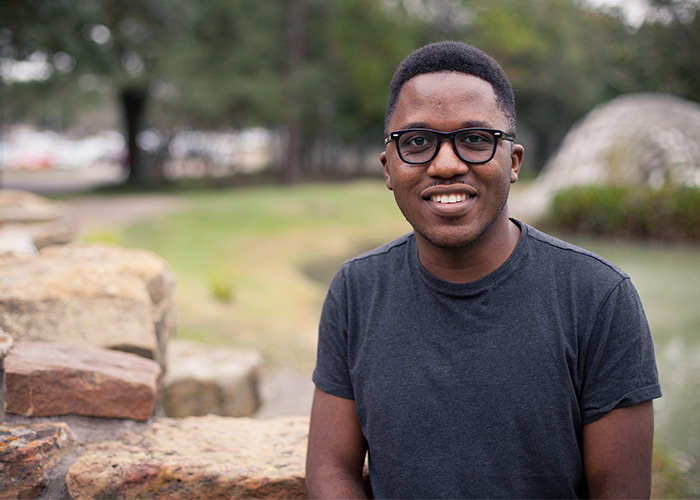One of 10 Students Awarded NSF Scholarship to Attend
Lucien Nana Yobo, a geology graduate student in the College of Natural Sciences and Mathematics, recently returned from the Urbino Summer School in Paleoclimatology (USSP), where he spent three weeks learning from scientists within his field.
 Lucien Nana Yobo, a Ph.D. student in geology, received a highly selective National
Science Foundation scholarship to attend the Urbino Summer School in Paleoclimatology.Nana Yobo was one of 10 graduate students selected for a scholarship from the National
Science Foundation to attend. This highly competitive scholarship, which is for graduate
students from U.S. universities, covers airfare, course expenses and a stipend.
Lucien Nana Yobo, a Ph.D. student in geology, received a highly selective National
Science Foundation scholarship to attend the Urbino Summer School in Paleoclimatology.Nana Yobo was one of 10 graduate students selected for a scholarship from the National
Science Foundation to attend. This highly competitive scholarship, which is for graduate
students from U.S. universities, covers airfare, course expenses and a stipend.
The USSP, which takes place every summer in Urbino, Italy, is widely considered among scientists to be the best course in paleoclimatology. This year, more than 70 students from around the world attended.
“The summer school featured a lot of hands-on activities, such as workshops, symposiums and lectures, taught by some of the leading faculty in the field,” said Nana Yobo, who is advised by Alan Brandon and Henry Chafetz, both professors of geology in the Department of Earth and Atmospheric Sciences.
Nana Yobo studies a time during the Cretaceous Period, called the Cenomanian-Turonian interval, when carbon dioxide levels were approximately five times current levels, and the oceans were depleted in oxygen.
To understand the conditions of that time, he is studying calcium carbonate rocks from that time period, which are formed skeletal fragments of marine organisms. These rocks offer a glimpse into what ocean conditions were like at the time.
“This can inform us of what some of the effects of the changing anoxic conditions of the ocean can be,” Nana Yobo said.
These periods of low oceanic oxygen, called Ocean Anoxic Event, were one of the main focuses of this year’s summer school, meaning that Nana Yobo was able to learn from some of the leaders in this field, as well as meet other students working on similar problems.
“I was able to make some good connections with other students and scientists working in my field,” Nana Yobo said. “In the scientific community, we aren’t working in isolation. It’s good to be able to bounce ideas off people, see what they are doing.”
- Rachel Fairbank, College of Natural Sciences and Mathematics